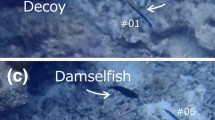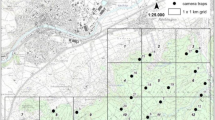Summary:
Goniosoma includes large and conspicuous species of harvestmen that occur exclusively in the Brazilian Atlantic forest. This paper reports on the parental activities, defensive behavior, and gregariousness of five species of Goniosoma, and also summarizes the published biological data for the genus. The behavioral patterns within the genus are discussed and a hypothesis for the emergence of gregariousness in the group is presented. Several Goniosoma live inside caves, mainly as trogloxenes. Although species of the genus comprise only 5% of the harvestmen fauna in Brazil, they account for 20.6% of all harvestmen species recorded in Brazilian caves. In addition to several morphological and physiological features that may favor the occupation of caves, species of Goniosoma also present subsocial behavior, which may confer a special advantage in this particular environment. Female protection is crucial for egg survival since predators may consume entire batches in a single night. Most species of Goniosoma form dense diurnal aggregations ranging from three to 200 individuals (mainly subadults and adults of both sexes). In a hypothetical scenario for the evolution of sociality in the Goniosoma, physiological constraints acting on individual harvestmen would lead to a behavioral response for the selection of sites with appropriate microclimatic conditions. The lack of cannibalism among adults and subadults may favor tolerance towards conspecifics, and may represent a pre-adaptation to gregariousness. The derived functions of gregarious behavior may include strengthening of the defensive signal through the collective release of a repugnant secretion, the dilution effect, and promptness in fleeing a predator attack as a consequence of the additional alarm role of scent gland secretions. These defensive functions may overcome the costs of group living and may be responsible for the maintenance of gregariousness in Goniosoma.
Similar content being viewed by others
Author information
Authors and Affiliations
Additional information
Received 30 October 2001; revised 4 July 2002; accepted 19 July 2002.
Rights and permissions
About this article
Cite this article
Machado, G. Maternal care, defensive behavior, and sociality in neotropical Goniosoma harvestmen (Arachnida, Opiliones). Insectes soc. 49, 388–393 (2002). https://doi.org/10.1007/PL00012663
Issue Date:
DOI: https://doi.org/10.1007/PL00012663




